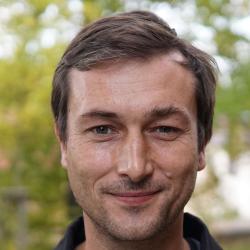Dear colleague,
we are pleased to invite you to submit your abstract to the Earthquake Geology session at the upcoming EGU meeting (22-27 April, Vienna). Deadline for submissions is January 17.
Session description
The role of geology in the study of earthquakes and in the assessment of seismic hazard has become increasingly important over the past two decades. Large crustal earthquakes may produce primary and secondary effects at the Earth’s surface that are recorded in young sediments and in the morphology. Thus, both present-day and past earthquakes can be studied from a geological perspective. Geological studies of recent earthquake ruptures provide data that are complementary to seismological and geodetic data, and help constraining source parameters. The insights gleaned from the study of recent earthquakes can be applied to identify past earthquakes. In most parts of the world, paleoseismology is the only tool to establish a record of earthquakes that is sufficiently long to determine recurrence intervals and long-term deformation rates (and their variability). Earthquake geology and paleoseismology are indispensible to identify active faults, and to constrain the maximum magnitude they may generate, parameters that are crucial in seismic hazard assessment. The field has also matured, and expanded into new directions: paleoseismology has been successfully applied on lake sediments, and it has become possible to image the buried evidence of single events using near-surface geophysics, to name but a few.
In this session, we welcome contributions describing and critically discussing different geological approaches to the study of earthquakes and seismogenic faults. We are particularly interested in studies applying new and innovative methodological or multidisciplinary approaches. We hope to assemble a broad program bringing together studies dealing with both present-day and past earthquakes, plate-boundary and intraplate settings, and traditional trenching and geophysical method, as well as the application of earthquake geology in seismic hazard assessment.
http://meetingorganizer.copernicus.org/EGU2012/session/9426
Matthieu Ferry and Kris Vanneste



No Comments
No comments yet.